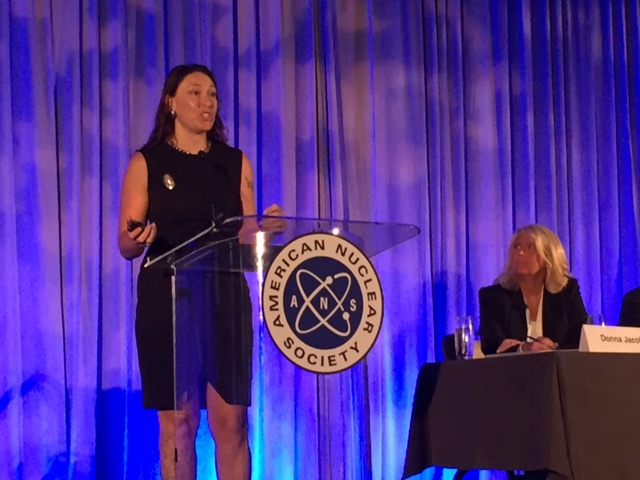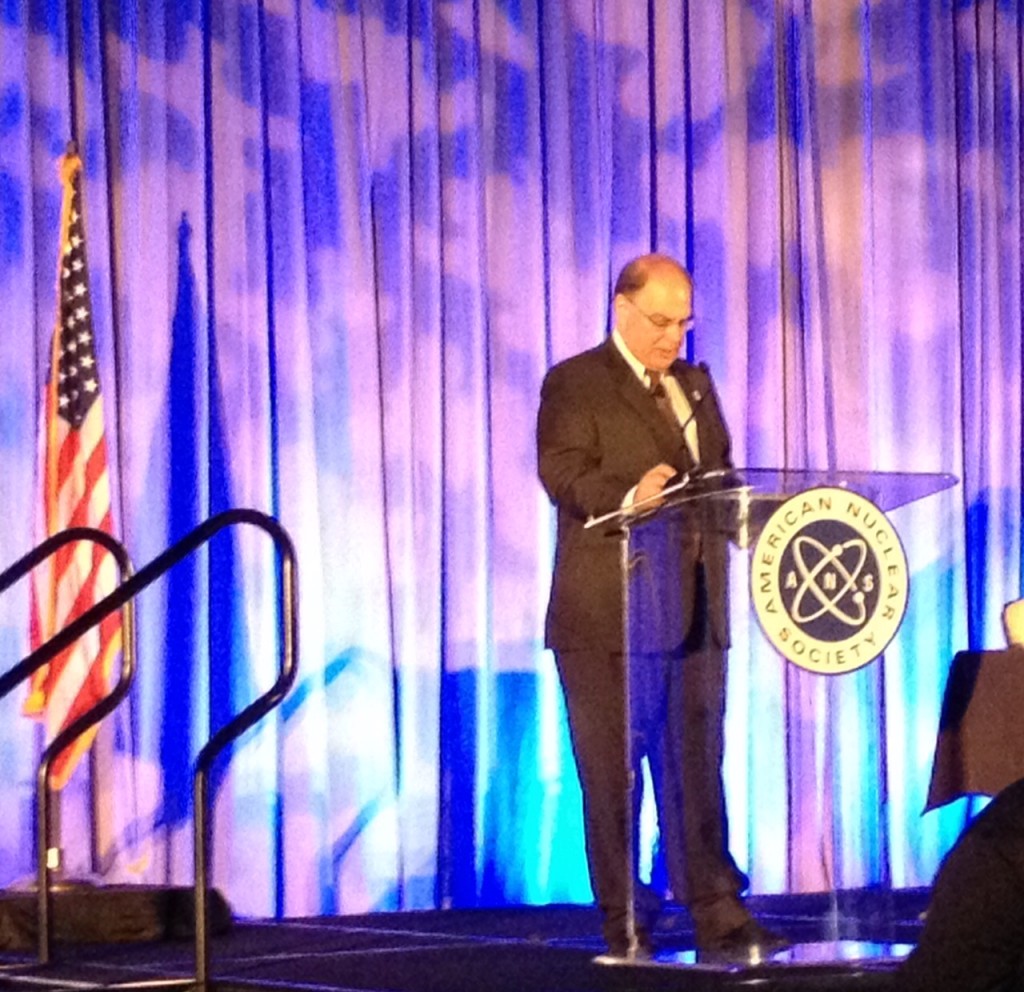ANS Annual Meeting 2016 Opening Plenary: We Need Nuclear and Nuclear Needs ANS
The 2016 American Nuclear Society Annual Meeting kicked off today (Monday, June 13) in New Orleans with a wonderful set of presentations on a wide variety of topics. ANS President Gene Grecheck opened the session and reminded those assembled that his mantra has been "We need nuclear, and nuclear needs ANS," following up with some of the success stories that ANS has been a part of in the past year:
• The Nuclear in the States Toolkit has garnered attention of policymakers at all levels.
• ANS's presence at the COP21 conference in Paris, along with a number of the organizations internationally that are involved in Nuclear for Climate, led to government officials from many nations approaching the two Nuclear for Climate booths with serious and informed questions on the possible use of nuclear energy or technology in their nations.
Grecheck observed that "for the first time in perhaps 15 years, nuclear energy is now recognized widely as a realistic carbon control strategy." His comments to the effect that nuclear plants in the United States have suffered at the hands of a highly imbalanced and imperfect energy market were echoed by Chris Bakken, Chief Nuclear Officer of Entergy, who stated that he had "greatly underestimated" the actual market effect of low-priced shale gas and its impact on operating nuclear plants. He reminded the audience that nuclear energy is a proven, safe, reliable, and secure 'round the clock energy source that is absolutely vital to a diverse mix of fuels (generating sources, that is) needed to ensure reliable electric power and to reduce carbon emissions. He remarked that the economics of the skewed markets (due to the presently low price of natural gas) simply don't support the continued operation of some of the nation's nuclear plants, but observed that only a small increase in the price of natural gas would return nuclear plants to sustainability.
Bakken pointed out that he is proud to be an ANS member and charged those present to make every effort to advocate for nuclear energy in every way possible, particularly at a local or state level. Bakken also spoke of his support for the ANS missions to support individual professional development and to influence policymaking. Meeting General Chair Donna Jacobs supported the words of Bakken, noting that "the volatility of natural gas (pricing) will drive the overall cost of energy."
Dr. Sarah Mack, of Tierra Resources, made a fascinating, if brief, presentation on the effects of rising sea levels on the local communities, with particular emphasis on the immediate effects of Hurricane Katrina. Her graphic presentation drove home the sheer loss of land that would occur with any sea level rise. While Tierra Resources is focused upon using Black Mangroves, a formerly "invasive" tree, to help gusset the shore lines around Louisiana (converting open water into salt marsh) she made it extremely clear that the use of nuclear energy is vital to mitigating world wide temperature rise that could lead to a rise in sea level. Her presentation title, "Why are YOU here?" made it clear that nuclear advocates have a clear purpose and told everyone that people doing her type of work "cannot do our work without nuclear energy helping protect our climate."

Dr. Sarah Mack of Tierra Resources, speaking at the ANS 2016 Annual Meeting Opening Plenary.
Dr. Michelle Sanchez of Tulane University next made a detailed presentation about local efforts by Tulane and others to drive STEM (Science, Technology, Engineering, Math) education in today's children K-12. She noted that STEM jobs generally pay about 10 percent more than non-STEM jobs having the same requirements for education, and said that STEM jobs generally will grow at a higher rate than non-STEM jobs.
Among a number of programs that Sanchez and Tulane U. participate in, Sanchez particularly pointed up the FIRST (For Inspiration & Recognition of Science & Technology) program that brings groups of students together to construct competitive, combat robots - using Lego bricks at the young ages and leading eventually to 120 pound "machine shop built" robots at the 9-12 grade levels. Sanchez observed that FIRST participants were two times as likely as others to major in science or engineering in advanced education, and that 41% percent of the participants who enter a STEM field major in engineering. Sanchez made it clear during her talk that it's too late to introduce STEM in high school, and that educational experience bears that out. STEM must begin early, she says, and be reinforced continually.
As usual, a vigorous Q&A session ended the Opening Plenary. Chris Bakken was asked by an audience member whether or not nuclear plants earmarked for shutdown could theoretically be "mothballed" and brought back to operation later. In perhaps the session's most poignant moment, Bakken replied clearly and methodically that nuclear plants tabbed for shutdown "cannot be brought back. Once you shut one of these things down, it's final," he said. He said that Entergy "cannot keep operating such major assets at a loss," and that with there being no chance of the markets providing a positive price signal favorable to nuclear in the short term there's no chance of keeping the most threatened plants operating, much less mothballing them. Perhaps in response to this, ANS President Gene Grecheck repeated in closing out the session that nuclear energy absolutely needs ANS - its experience, its influence, its membership - to get out and advocate every way possible for nuclear energy.


